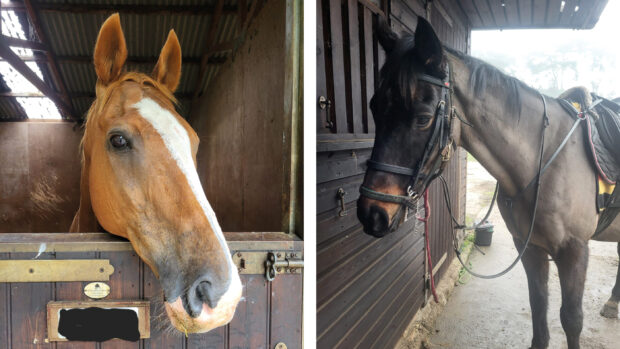A warning has been issued for owners and vets to be extra-vigilant this season as cases of an often-fatal muscular condition appear to be on the rise.
Liphook Equine Hospital in Hampshire issued an alert after diagnosing five cases of atypical myopathy in a few days at the end of October. Three of the horses died.
And they are aware of a further four deaths in the Hampshire/Sussex/Surrey area.
Atypical myopathy weakens the muscles of the skeleton and heart and can present colic-like signs. Horses may shiver, sweat or collapse. They will appear weak and have dark red-brown urine.
The condition often occurs at this time of year in horses that are at grass.
Vets are not sure of the cause but it is thought to be due to an ingested toxin – possibly from a fungus or bacteria – which is triggered by the change towards winter weather.
“We’ve seen a rise in cases from previous years,” said Victoria Copas from Liphook.
“And there are some less-recognised earlier signs to look for – lethargy, vigorous head shaking and choke-like signs. If you’re concerned, contact a vet.”
And H&H vet consultant Karen Coumbe, of Bell Equine in Kent, said she has seen two cases since the beginning of the month – one died and one recovered. H&H is also aware of cases in Berkshire and Suffolk.
“It’s always a problem at this time of year but we’ve seen more this season. The main thing is to catch it early,” Karen said.
Horses diagnosed early by blood and urine tests can be treated with intravenous fluids but it has a rapid onset.
This news story was first published in the current issue of Horse and Hound (17 November 2011)




